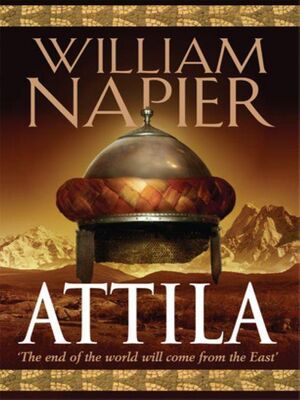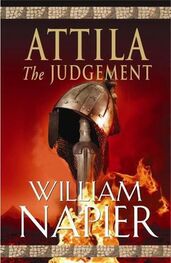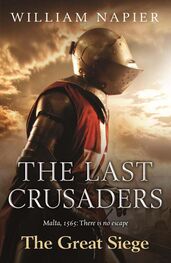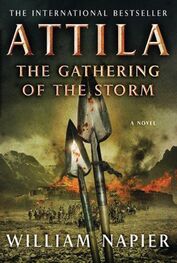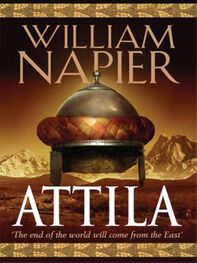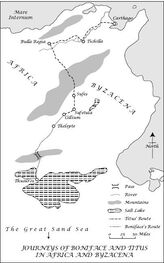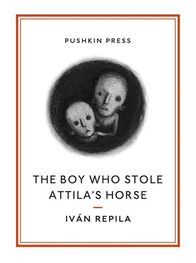It was based on the encryption system that Julius Caesar himself had devised for his military communications. Perhaps those hours and tedious days at the hands of his wretched pedagogue, Demetrius of Tarsus, during which Attila was instilled with the rudiments of Roman history and culture, and therefore, supposedly, with an appropriate respect and reverence for the empire – perhaps those lessons hadn’t been wasted after all.
During August, A, U, G, S, and T were used to represent A, B, C, D and E – and then the rest of the alphabet was shifted five letters down against the code alphabet accordingly. In August, ‘Caesar’ was written ‘Gatpao’. The following month, the first seven letters would change to S, E, P, T, M, B and R, and ‘Caesar’ would be written ‘Psmosn’.
The boy worked all this out in secret, by listening from shadowy corners, by picking up scraps of paper, by brooding in his loneliness and solitude, like a wolf, or a spider. Like the slow-moving Iron River of Scythia for which, some said, he was named.
And all the while that he was breaking the palace code system in secret, his irascible Greek pedagogue was beating him regularly for being slow-witted over his books.
As well as these more intellectual preparations for his escape, Attila had amassed practical aids, such as the sharp little fruit-knife from the banquet, a store of low-denomination copper coins, a bag of oatmeal he’d stolen from the kitchens, and some corks.
Soon after nightfall on that night of victory celebrations over the barbarians, Attila quit his place at the lower tables of the banqueting hall, and made swiftly for his chamber, where he collected his treasures. Then he slunk through the near-deserted courts of the palace, praying to his father Astur to guide and shield him, until he approached the guards in the main gatehouse, trembling so badly with fear that he could barely trust himself to speak.
‘Halt! Who goes there?’
He said nothing, went nearer.
‘I said, halt!’
Attila halted.
The moonlight shone on the Palatine guard’s black cuirass and his plumed black helmet. He was a tesserarius – a password-officer. He glared down at the boy. ‘Give me your name.’
Attila hesitated, then said softly, ‘Cicero.’
The guard reacted with some surprise. ‘Who gave you the password?’ he growled.
‘None of your business,’ said the boy. ‘Nor do I have to tell you my name. The correct password is “Cicero”. So let me pass.’
The guard hesitated a little longer, his meaty fist clenched round his spearhaft. Then reluctantly he lowered it and nodded to the boy to pass. His fellow guardsmen began to draw back the heavy ironbound gates. Already the tesserarius could imagine, with uncomfortable vividness, the feeling of his centurion’s vinewood knout descending on his back. But what could he do? A password was a password.
The boy slipped past him and vanished into the street. The guard looked out after him, but already he was lost to view.
THE STREETS OF ROME
Attila breathed free air for the first time in a year. Although the air was that of a great and populous city rather than the wild air of Scythia, nevertheless it was free. And nothing but a few hundred miles now lay between him and his beloved homeland.
He turned left out of the palace, and hurried down the street to the corner, with the great extension to the Palatine complex built by Septimius Severus to his left. He rounded the corner and headed for the shadowy arches of the great Aqueduct of Nero below, and the darkened streets beyond. He had it all mapped out in his mind.
Down to the foot of the Palatine Hill, another left round the Arch of Constantine, with the great, looming mass of the Colosseum to his right. Then, slipping into the alleyway behind the ancient Temple of Venus and Roma, and then the Temple of Pacis – a very small and insignificant temple, by Roman standards – he hurried onwards, making for the nameless and dangerous backstreets of the Suburra, with the three hills of the Quirinal, the Viminal and the Esquiline rising up behind.
After the day of triumph and the games, the midnight streets of the poorer parts of the city were filled with drunken, jeering people. They swayed and staggered about arm in arm, emerging from the pervigiles popinae, the city’s numerous keep-awake bars, or else disappearing into one of the many brothels in the district, whose line of trade was signalled by a statue of Herm outside, with his erect and outsized penis painted in eye-catching scarlet.
The populace chanted songs about the greatness of Rome – or their emperor.
‘The Emperor Honorius
Was sitting in the bath-house,
His arse was out the window
But his cock was in the hall!
His hair, oh! it was glorious,
All dressed with art laborious,
But his balls were like a chicken’s
When his sister came to call!’
Sometimes, for the sake of variety, they broke into songs about the superiority of their favourite chariot team, the Blues or the Greens. Their tuneless roaring was interrupted only by the need to pause from time to time and vomit forth bellyfuls of sour new wine into the flowing gutters. The moment a mob of Blues supporters ran into some Greens, of course, all pandemonium broke out. But, as history so powerfully tells us, people enjoy fighting each other, and need little excuse to begin. A rival chariot team is certainly sufficient reason for bloodshed.
Indeed, in that glittering, God-crazed other capital to the east, Constantinople, didn’t the crowds run riot and kill each other over the choice of its priests, as had happened recently with the election of Bishop Eustachius? Or even over changes to the liturgy? But they were a mad, excitable, Asiatic lot over there. At least in Rome the people had the good sense to confine their violence to matters of sport.
For the most part, Attila deftly avoided these scenes of debauchery and tumult. Only occasionally did he pause to gaze in wordless contempt at the squalor and vice that made up the underbelly of this great city. As always, he could not help but compare the Roman plebeians’ behaviour with that of his own quiet people, back on the great plains, their solemn feasts, their simple dignity, their self-reliance and absolute self-control. Drunkenness they regarded with disgust: an adult trying to make himself like a child again – or even a madman. And as for the idea of the daily dole given out in Rome gratis to this scrounging, unwashed rabble…
For it had been with disbelief that the boy had first learnt that, every day, the Roman state gave out food, for free, to anyone who came to queue for it. Originally it had been a magnanimous gift of bread handed out only to the poor or the terminally idle; but then that free bread had become a right. More recently, in the reign of Emperor Aurelian, the daily dole had grown into a lavish, seductive hand-out not only of bread but also of pork, oil and wine, to hundreds of thousands of the shameless mob. But of course nothing in this world was free. The dole was given to the rabble in exchange for their quiescence. In exchange for their very hearts and minds.
The boy knew that his people, the nation of the Huns, would never be softly seduced and Romanised like other barbarian peoples. To the Huns, as to the boy himself – a Hun, indefatigably, to his soul – such a surrender of oneself as this daily dole, such a pitiful abdication of one’s own pride and self-reliance, would be a source of dishonour and shame unspeakable. Among the Huns, most proud and warlike of peoples, for a man not to be able to provide meat for his family, with the art and labour of his own hand and eye, would have been a humiliation scarcely endurable.
Читать дальше